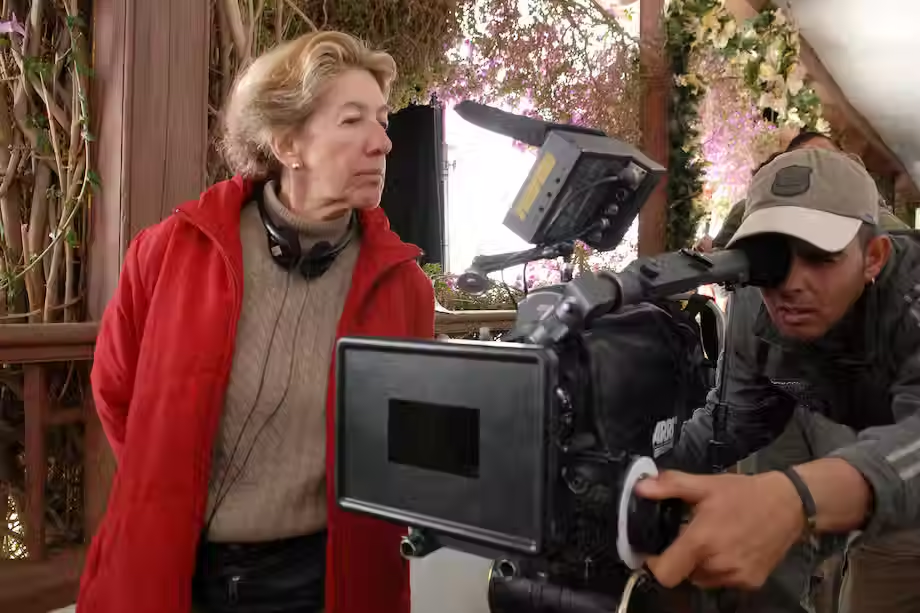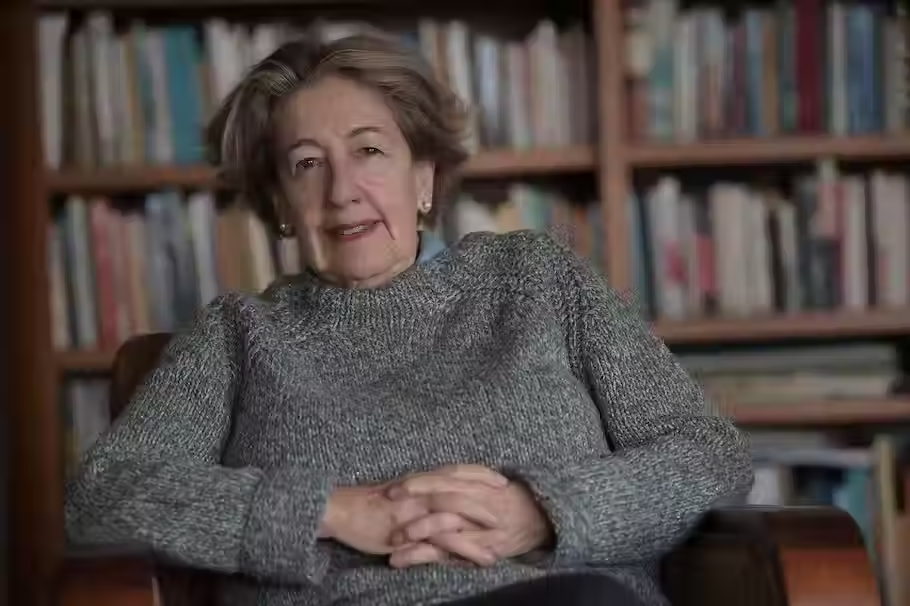Farewell to Camila Loboguerrero: Pioneer of Colombian Cinema and Tireless Defender of Audiovisual Authors
- FESAAL

- Jun 21, 2025
- 4 min read

Audiovisual creators across Latin America and the world bid farewell to Camila Loboguerrero—filmmaker, pioneer, educator, and tireless advocate for audiovisual authors’ rights—who passed away in the early hours of June 21 in Bogotá, Colombia.
Her absence leaves a deep wound, but also an indelible legacy: that of a woman who blazed trails where none existed, and who worked until her final days for the collective wellbeing of her peers.
Camila Loboguerrero was not only the first woman to direct a fiction feature film in Colombia. She was also one of the clearest and most persistent voices in the defense of audiovisual creators, particularly in her role as vice president of DASC (Directores Audiovisuales Sociedad Colombiana), an organization to which she dedicated her final years with energy, conviction, and unwavering solidarity.
“I don’t want to die. I still have some films left to make,” she used to say, with the intelligent humor and mix of tenderness and determination that defined her. Until the end, her desire was to keep creating, teaching, and filming. Camila understood that art is resistance—and her cinema always stood at the margins, challenging them.

The path of a pioneer
Born in Bogotá in 1941, she studied Fine Arts at the Universidad de los Andes. In 1967, she traveled to Paris to study Art History, but it was there—in the movie theaters of the Latin Quarter and university cinematheques—that she discovered her true vocation: telling stories through images. Brazilian cinema, the New Latin American Cinema, the aesthetic revolutions of the 1960s—all of it was a catalyst.
“I was a cinematheque rat. I watched films daily. That’s where I discovered the kind of cinema we needed in Latin America,” she recalled in interviews. Inspired by the Peruvian filmmaker Jorge Reyes, she decided that she too could be a director, even though she had no contacts, no funding, and no real film industry in her home country. In 1971, she returned to Colombia with her young son, determined to make films.
For more than twenty years, she was the only woman in Colombia directing fiction films. She did so in adverse conditions, financing her productions with personal loans—like Con su música a otra parte (1984), which she co-produced with her partner, architect Rafael Maldonado. This was followed by María Cano (1990), Migrantes (1995), Nochebuena (2008), and numerous documentaries of significant cultural and social value.
“Every film was like giving birth. It was never easy. But María Cano resonated deeply with women. She was a beloved figure,” she said of her most recognized work, centered on the life of the socialist leader from Antioquia. In addition to her work as a director, Camila was a university professor and briefly served as Director of Cinematography at the Ministry of Culture in 2000. But her true calling was never bureaucracy—it was art and education. “I don’t have a politician’s soul. I’ve already done my part for the homeland,” she would say with a smile.
Defender of authors' rights
In recent decades, her energy was focused on DASC, where she strongly supported the efforts of its founder, Mario Mitrotti. As the organization's vice president, she was a key voice in defending the labor and authors’ rights of Colombian directors, especially those aging without pensions or income. Her fight alongside her colleagues was essential in the achievement of the Pepe Sánchez Law, which celebrates its 8th anniversary this year since being passed by Congress.
She also played an active role in the creation of the Federación de Sociedades de Autores Audiovisuales de Latinoamérica (FESAAL), which later became the foundation for the International Confederation of Audiovisual Authors (AVACI), uniting screenwriters and directors across five continents. “Camila wasn’t satisfied with opening a path for women in cinema—she also wanted that path to be fair, dignified, and collective,” her colleagues affirm.
During the pandemic, she wrote an unpublished autobiography and was recently working on a new film project that revisited a short she had made fifty years ago in Colombia’s Chocó region. Her ability to turn the past into living material was also a form of resistance against forgetting. “I wrote that book as a way of telling death: ‘Wait, don’t come for me just yet, I still have things to do.’”

A profound farewell
From DASC, the organization she helped strengthen with her clarity and commitment, its current president Teresa Saldarriaga expressed the collective grief: “With deep sorrow, we regret to inform you of the passing of our vice president, Camila Loboguerrero. Her departure has shaken us all. We extend our heartfelt condolences and a strong embrace to her family and friends during this painful time.”
The Latin American audiovisual community bids her farewell with gratitude, admiration, and respect. Her name is etched in the history of cinema—but also in the hearts of those who found in her a mentor, a colleague, a courageous woman “If I’m not stressed, I’m dead. If I’m doing nothing, I’m dead—or I go looking for illnesses maybe,” she once said. Camila lived by creating. She lived by fighting. And in her work, she will remain alive.
Colombian cinema has many mothers, but only one pioneer. Camila Loboguerrero proved that to create is to resist. Her vision is vital, her voice, indispensable. For many generations, she has been—and will continue to be—an open door to the future of cinema made by women in Colombia.
















Comments